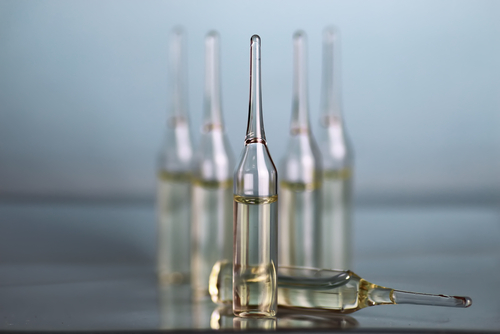Not Having to Refrigerate a Clotting Factor Increases Satisfaction with It, Study Finds
Written by |

Hemophilia A patients who do not refrigerate their bleeding prevention therapy are more satisfied with it and report fewer restrictions on their daily activities, a study finds.
Researchers also discovered that most of the patients were unaware that they could keep their recombinant factor VIII clotting therapy at room temperature.
The study, “Patient preferences in the treatment of hemophilia A: impact of storage conditions on product choice,” appeared in the journal Patient Preference and Adherence.
Most patients with severe hemophilia A receive factor VIII by intravenous injection two or three times a week to prevent bleeding. Those with a less severe disease take it when they have a bleeding episode.
The majority of patients who take the factor inject themselves with it, or have a caregiver do it. The factor is sold as a powder. It must be mixed with a solution before use.
While manufacturers recommend storing Factor VIII in a refrigerator, most products can be stored at room temperature for three to 12 months.
Preventive treatment significantly improves the outcomes of patients with severe hemophilia. The inconvenience of preparing and administering factor VIII injections can prevent patients from sticking to their treatment, however. And some patients may consider storing the factor in a refrigerator an inconvenience, particularly when they need to travel.
To get a better idea of how patients feel about having to refrigerate factor VIII, researchers interviewed 200 of them in six countries. Some of the 30-minute interviews were face to face, and some online. The patients had either moderate or severe hemophilia A.
Two-thirds of the participants said they were using recombinant factor VIII products. Only 17 percent reported being dissatisfied with them, but more than 40 percent said they were unhappy with having to take them so many times and having to refrigerate them while traveling.
Most of the participants said they had to restrict some activities because of their condition, particularly sports and travel. Eighty-five percent said they stored their factor in the refrigerator. And 88 percent who did said they were under the impression that it had to be refrigerated.
Patients who stored the factor in a refrigerator were less satisfied with the product overall, and worried about the storage temperature, the researchers reported.
This group also reported more restrictions on their daily activities and spent more time on preparation and injection than those storing their factor at room temperature.
Interestingly, researchers discovered that the main reason a patient chose a factor VIII product was the way it was made. Some wanted a plasma-derived treatment and some a recombinant, lab-made treatment.
Other reasons for choosing a product were being able to store it at room temperature, how many times it had to be administered, and what kind of device was needed to reconstitute it — that is, mix the powder and solution.
“Not refrigerating FVIII products was associated with greater patient satisfaction and less restriction on daily activities,” the researchers wrote. “If efficacy and safety are unaffected, then storing FVIII at room temperature might have a positive impact on product choice.
“Few patients were aware that FVIII can be stored without refrigeration,” they wrote. Doctors “who treat hemophilia should communicate this aspect to the patient,” they contended.


